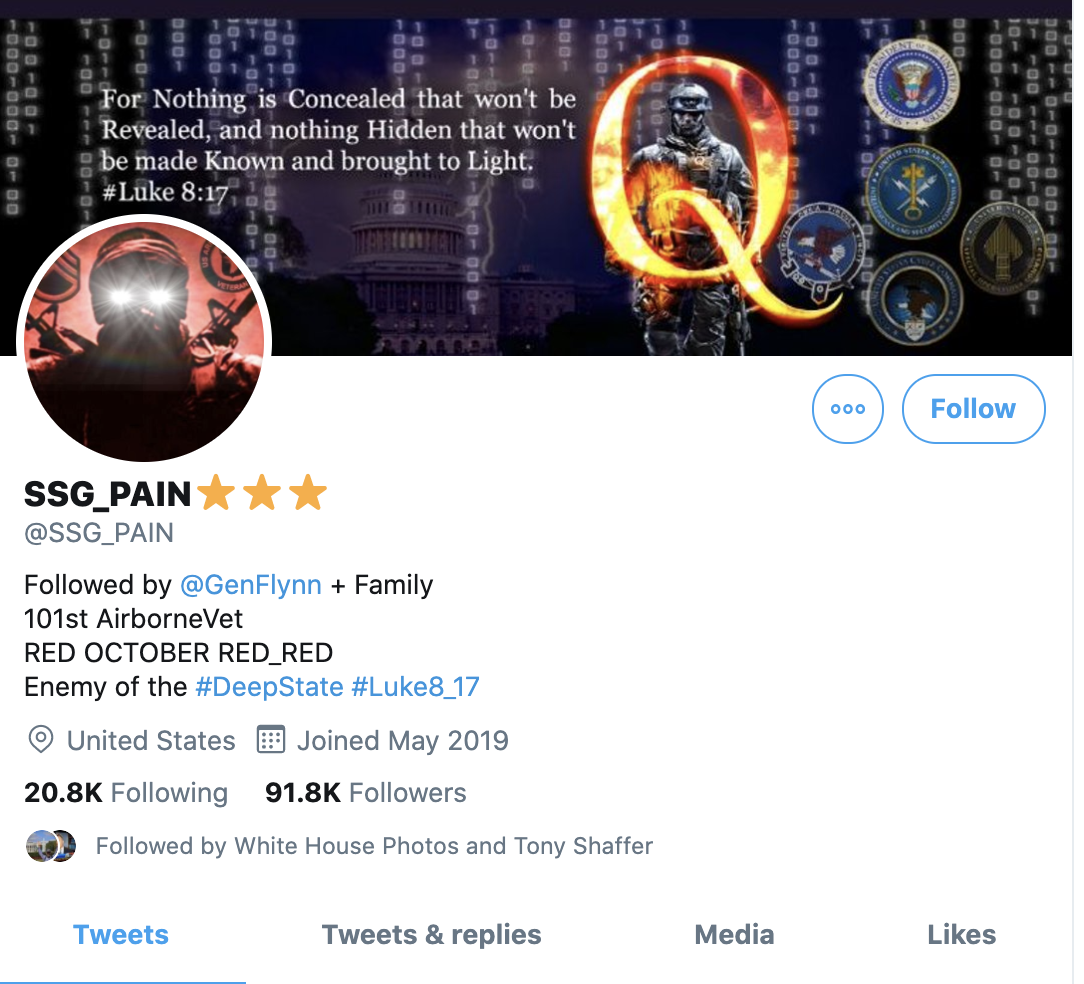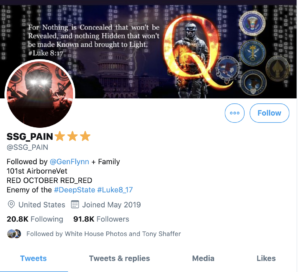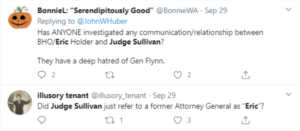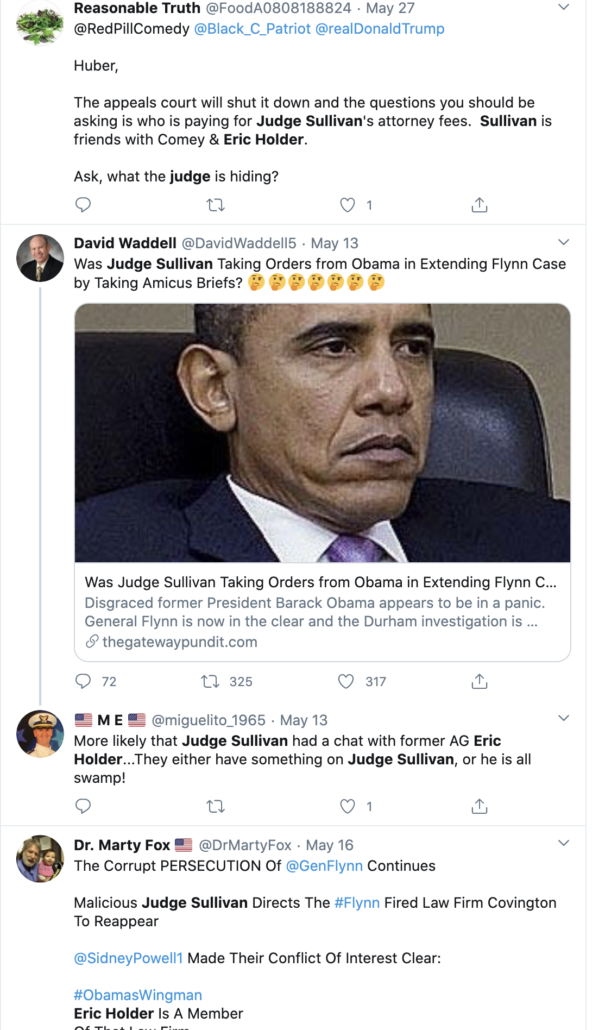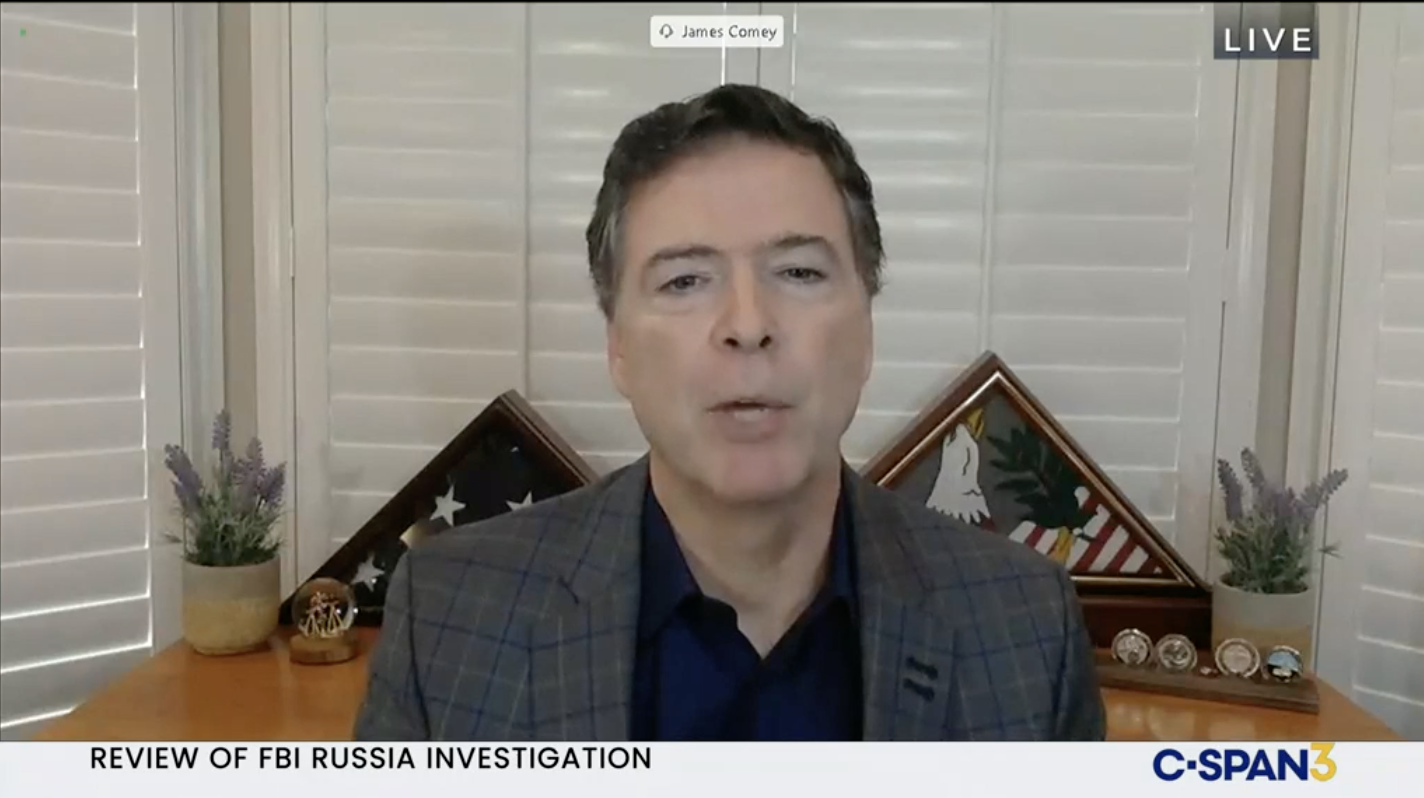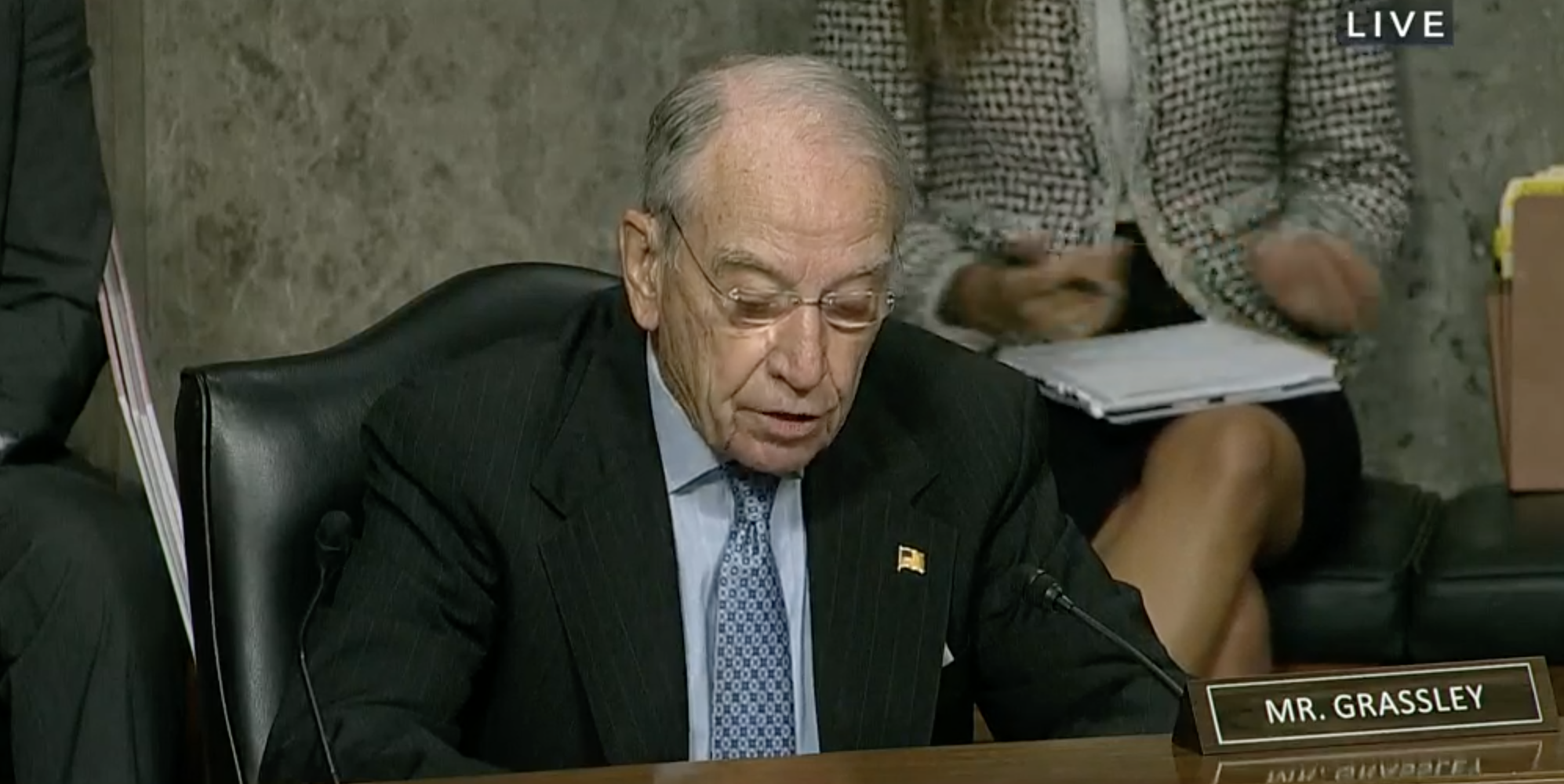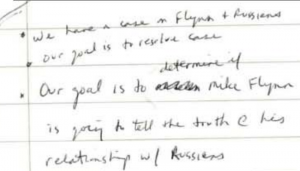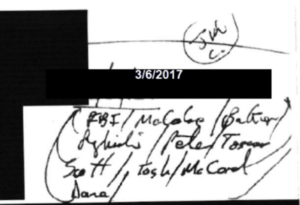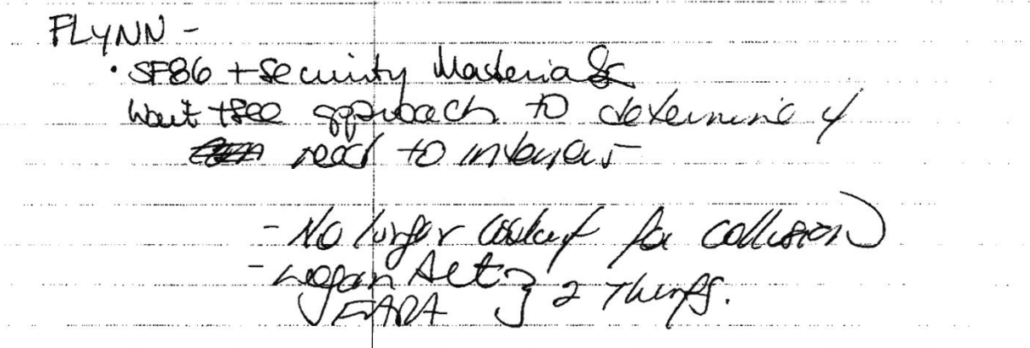I’ve been harping on the process that facilitated Sidney Powell — and then President Trump — falsely blaming Joe Biden for raising the Logan Act in the context of the government’s response to Mike Flynn’s attempts to secretly undermine sanctions on Russia.
That process started on June 23, when prosecutor Jocelyn Ballantine sent an undated copy of Peter Strzok’s notes to Sidney Powell, explaining that they had been found as part of Jeffrey Jensen’s review. Using the royal “we,” she professed uncertainty about when those notes were written.
The enclosed document was obtained and analyzed by USA EDMO during the course of its review. This page of notes was taken by former Deputy Assistant Director Peter Strzok. While the page itself is undated; we believe that the notes were taken in early January 2017, possibly between January 3 and January 5.
Sidney Powell, referencing those notes, claimed they were believed to date from January 4 and asserted that they showed Joe Biden raising the Logan Act.
Strzok’s notes believed to be of January 4, 2017, reveal that former President Obama, James Comey, Sally Yates, Joe Biden, and apparently Susan Rice discussed the transcripts of Flynn’s calls and how to proceed against him. Mr. Obama himself directed that “the right people” investigate General Flynn. This caused former FBI Director Comey to acknowledge the obvious: General Flynn’s phone calls with Ambassador Kislyak “appear legit.” According to Strzok’s notes, it appears that Vice President Biden personally raised the idea of the Logan Act.
Then, on September 23, Ballantine sent Powell a set of Strzok’s notes with a different Bates stamp than the first. When it was submitted — by Powell — to the docket, it had a date on it that did not appear on the earlier set: 1/4-5/17.
Then, five days after Powell (who has had multiple conversations with Trump’s campaign lawyer, Jenna Ellis, including about this case) loaded the now-dated notes onto the docket, President Trump publicly accused Joe Biden of giving “the idea for the Logan Act against General Flynn” in their first debate.
President Donald J. Trump: (01:02:22)
We’ve caught them all. We’ve got it all on tape. We’ve caught them all. And by the way, you gave the idea for the Logan Act against General Flynn. You better take a look at that, because we caught you in a sense, and President Obama was sitting in the office.
Thus it happened that an error introduced into the Flynn proceeding got turned into a campaign prop.
The thing is, DOJ has abundant proof that Jeffrey Jensen knew (or should have known) there was no uncertainty about the date when those notes were handed over to Powell. Indeed, if he did not know, then the entire premise of their motion to dismiss falls apart.
In Timothy Shea’s motion to dismiss, he obliquely attributed the radical change in DOJ’s view of Mike Flynn’s prosecution to Jeffrey Jensen’s review of the case, citing three dockets where Powell uploaded information that Ballantine had shared with the explanation (one, two) that the material came out of Jeffrey Jensen’s review.
After a considered review of all the facts and circumstances of this case, including newly discovered and disclosed information appended to the defendant’s supplemental pleadings, ECF Nos. 181, 188-190,1 the Government has concluded that the interview of Mr. Flynn was untethered to, and unjustified by, the FBI’s counterintelligence investigation into Mr. Flynn—a no longer justifiably predicated investigation that the FBI had, in the Bureau’s own words, prepared to close because it had yielded an “absence of any derogatory information.”
1 This review not only included newly discovered and disclosed information, but also recently declassified information as well.
All the purportedly “newly discovered” information, then, comes from Jensen.
Bill Barr cited Jensen’s review even more explicitly in an interview with Catherine Herridge.
What action has the Justice Department taken today in the Michael Flynn case?
We dismissed or are moving to dismiss the charges against General Flynn. At any stage during a proceeding, even after indictment or a conviction or a guilty plea, the Department can move to dismiss the charges if we determine that our standards of prosecution have not been met.
As you recall, in January, General Flynn moved to withdraw his plea, and also alleged misconduct by the government. And at that time, I asked a very seasoned U.S. attorney, who had spent ten years as an FBI agent and ten years as a career prosecutor, Jeff Jensen, from St. Louis, to come in and take a fresh look at this whole case. And he found some additional material. And last week, he came in and briefed me and made a recommendation that we dismiss the case, which I fully agreed with, as did the U.S. attorney in D.C. So we’ve moved to dismiss the case.
So this decision to dismiss by the Justice Department, this all came together really within the last week, based on new evidence?
Right. Well U.S. Attorney Jensen since January has been investigating this. And he reported to me last week.
In other words, both Shea and Barr represented that the case laid out in the motion to dismiss is the case that Jensen made that persuaded Barr to drop the prosecution.
That means we should expect Jensen to have deep familiarity with all the documents that — the motion to dismiss claims — formed the basis of his review.
I put a list of those exhibits here (along with an explanation that virtually everything cited in it was already known when DOJ first charged Flynn, when Michael Horowitz concluded the investigation was properly predicated, and when Bill Barr’s DOJ called for prison time in January).
Among those documents that Timothy Shea — and before him, Jeffrey Jensen — relied on to claim that DOJ should drop Flynn’s prosecution is the 302 from Mary McCord’s July 17, 2017 interview with Mueller’s team. The motion to dismiss cites McCord at least 26 times, relying on her interview to understand details of what happened in early January 2017, after the government discovered Flynn’s calls that explained why Russia didn’t retaliate for sanctions. Of particular note, the motion to dismiss that arose from Jensen’s analysis cites McCord’s interview regarding the discussion about the Logan Act — including that the investigation remained a counterintelligence one after discussing the Kislyak description. McCord’s description of the Logan Acti discussion reveals precisely who first raised it: ODNI GC Bob Litt.
General Counsel at the Office of the Director of National Intelligence (ODNI) Bob Litt raised the issue of a possible Logan Act violation. McCord was not familiar with the Logan Act at the time and made a note to herself to look it up later.
DOJ should never have let Powell form the conclusion that Joe Biden first suggested the Logan Act, because they were relying on a document that made it clear that Litt had already raised it. That’s where Jim Comey got the idea, before he went into that January 5, 2017 meeting.
Another document Shea and Jensen relied on in arguing that DOJ should end the Flynn prosecution is the 302 from Sally Yates’ August 15, 2017 interview with Mueller’s team. Shea’s motion to dismiss — based off Jensen’s analysis — cites Yates’ 302 at least 20 times, including in its discussion of the Logan Act. What Shea didn’t cite, but what shows up in the first substantive paragraph of the 302, is a description of how Yates first learned of the Flynn-Kislyak calls at a meeting at the White House on January 5, 2017.
Yates first learned of the December 2016 calls between (LTG Michael) Flynn and (Russian Ambassador to the United States, Sergey) Kislyak on January 5, 2017, while in the Oval Office. Yates, along with then-FBI Director James Comey, then-CIA Director John Brennan, and the-Director of National Intelligence James Clapper, were at the White House to brief members of the Obama Administration on the classified Intelligence Community Assessment on Russian Activities in Recent U.S. Elections. President Obama was joined by his National Security Advisor, Susan Rice, and others from the National Security Council. After the briefing, Obama dismissed the group but asked Yates and Comey to stay behind. Obama started by saying he had “learned of the information about Flynn” and his conversation with Kislyak about sanctions. Obama specified he did not want additional information on the matter, but was seeking information on whether the White House should be treating Flynn any differently, given the information. At that point, Yates had no idea what the President was talking about, but figured it out based on the conversation. Yates recalled Comey mentioning the Logan Act, but can’t recall if he specified there was an “investigation.” Comey did not talk about prosecution in the meeting. It was not clear to Yates from where the President first received the information. Yates did not recall Comey’s response to the President’s question about how to treat Flynn. She was so surprised by the information she was hearing that she was having a hard time processing it and listening to the conversation at the same time.
That long paragraph that very clearly describes the meeting at the White House captured in Peter Strzok’s notes directly precedes one that Shea (and so by association, Jensen) rely on heavily. According to Yates, Jim Comey was the one who raised the Logan Act in that meeting, not Joe Biden. And McCord, which they also rely on, makes it clear Comey got the idea from Litt.
Finally, the Shea motion to dismiss based on Jensen’s analysis relies on Jim Comey’s HPSCI testimony — one of just two documents that DOJ may not already have reviewed before Mike Flynn’s guilty plea. It cites the Comey transcript 16 times, including for a paragraph on the Logan Act.
As Sally Yates did, Comey described that the meeting at the White House involving the two of them took place on January 5.
I had not briefed the Department of Justice about this, and found myself at the Oval Office on the 5th of January to brief the President on the separate effort that you all are aware of by the Intelligence Community to report on what the Russians had done during the election. And in the course of that conversation, the President mentioned this [redacted] And that was the first time the Acting Attorney General, Sally Yates, had heard about it.
In no place does the Timothy Shea motion to dismiss, based off Jeffrey Jensen’s analysis, raise any questions about the veracity of these witnesses. Indeed, the motion relies on those documents as reliable descriptions of what happened in January 2017.
That means that either the DC US Attorney’s Office and Jeffrey Jensen are very familiar with the documents they rely on heavily to argue that Judge Sullivan must dismiss Flynn’s prosecution, in which case they affirmatively misled the court when they claimed to have no idea on what date the meeting described by both Yates and Comey occurred. That would mean, though, that Jensen affirmatively misled the court about a detail three months before the President used that error to make a campaign attack. And somehow an exhibit got altered to match that affirmative misinformation.
Alternately, none of the people claiming that these documents justify dismissing Flynn’s prosecution really know what these documents say.
Certainly, all parties should be on the hook for an exhibit that got altered to suggest the meeting could have taken place on January 4.

